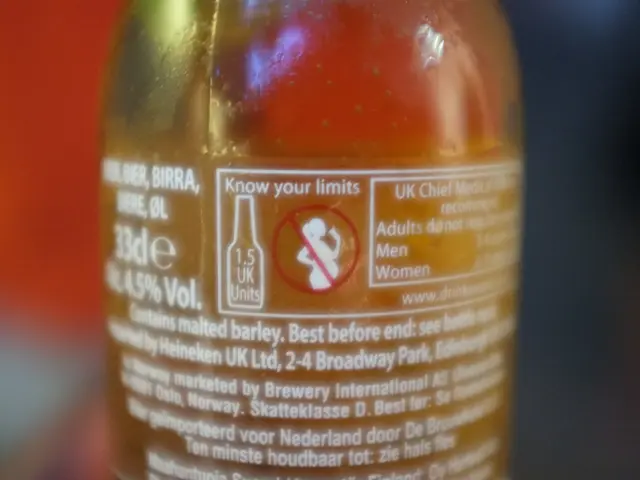Understanding Substance Misuse: An Overview
In today's world, teen substance abuse is a pressing issue that affects countless families and communities. Substance abuse, referring to the harmful or hazardous use of psychoactive substances including alcohol and illicit drugs, can lead to significant impairment or distress in teens.
Teens may experiment with drugs, engage in binge drinking, or use substances to cope with emotional or social challenges. Risk factors for teen substance abuse are varied and complex, encompassing peer pressure, family history, mental health issues, academic pressure, environmental factors, lack of support systems, and exposure to violence or trauma.
Understanding these causes is essential for prevention and intervention. Environmental, psychological, and social influences all play a role in the development of substance abuse in adolescents. Early substance use is a strong predictor of developing substance use disorders later in life.
Preventing substance abuse among teens is a shared responsibility between parents, schools, and communities. Open communication, education and awareness programs, encouraging healthy activities, monitoring and supervision, and building resilience skills are key prevention strategies.
Early intervention and support are crucial in breaking the cycle of substance abuse that can extend into adulthood for individuals who abuse substances as teens. Resources for teen substance abuse treatment can be found through local health departments, school counselors, online directories of treatment centers, and support groups for teens and families.
Behavioral therapy, particularly Cognitive Behavioral Therapy (CBT) and Motivational Interviewing (MI), is a cornerstone of substance abuse treatment for teens. Medication-Assisted Treatment (MAT) combines medications with counseling and behavioral therapies to treat substance use disorders in teens.
Family therapy can improve communication among family members, resolve conflicts that may lead to substance use, and strengthen family bonds, providing a solid support system for the teen.
Long-term substance abuse can lead to serious health problems like liver disease, respiratory issues, and cardiovascular problems. It can also result in chronic health issues, increased risk of mental health disorders, legal problems, academic failure, and relationship difficulties. Teens who abuse substances are at a higher risk for accidents, injuries, and even overdose.
The use of e-cigarettes has surged among teens, with over 25% of high school students reporting they have vaped in the past month. Teens who engage in substance abuse can face legal consequences, including arrests for possession or DUI.
Substance abuse can lead to social isolation, causing teens to feel alienated from friends and family, leading to feelings of loneliness and despair. Support groups like Alcoholics Anonymous (AA) and Narcotics Anonymous (NA) provide a platform for teens to share their experiences and connect with others facing similar challenges.
In Germany, organizations offering support for parents of adolescent substance abusers include SLS e.V. (Sächsische Landesstelle für Suchtfragen), which provides self-help groups, counseling centers, and specialized clinics; Kidkit (a project of KOALA e.V. and Drogenhilfe Köln e.V.) offers information and counseling for children and adolescents in families affected by addiction; and the online platform "Hilfen im Netz," funded by the Federal Ministry for Family Affairs, provides free and anonymous online counseling for children and youth from families with addiction issues.
Approximately 20% of high school students have used illicit drugs at least once in their lifetime, and around 30% of teens have consumed alcohol by the time they reach their senior year. The impact of substance abuse on teens can be profound and long-lasting, affecting physical health, mental health, academic performance, and relationships.
The long-term effects of substance abuse on teens can include chronic health issues, increased risk of mental health disorders, legal problems, academic failure, and relationship difficulties. Inpatient programs provide a structured environment where teens can focus solely on recovery, while outpatient treatment allows teens to live at home while attending therapy sessions and support groups.
In conclusion, addressing teen substance abuse is a multifaceted challenge that requires the collective effort of parents, schools, communities, and healthcare providers. By understanding the causes, implementing prevention strategies, and providing early intervention and support, we can help break the cycle of substance abuse and support our teens in leading healthy, productive lives.
Read also:
- "Family asserts that defective insulation led to a major mold outbreak"
- Energy Minister of Malawi, Ibrahim Matola, heads Malawian delegation for a knowledge exchange on BESS (Battery Energy Storage Systems), a trip held in India. This exchange is backed by the Global Energy African Partnership Program (GEAPP).
- Residents of Stuttgart frequently search for "stress relief" online.
- Struggling with health care access, patients across Asia confess, according to a Prudential-funded research project







